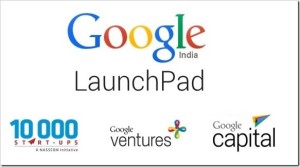In the early days, tech companies like Google and Microsoft could make it a point of pride not to be involved with Washington politics. They were companies perceived as independent from, or even above politics and politicians. Now, in the golden age of the tech startup, leaders are having to not only accept Washington lobbying as a part of their operation, but embrace it.
According to the New York Times, startups have received a special kind of attention this year. Uber and AirBnb, two immensely popular convenience apps and startup companies have been in the public spotlight after facing a barrage of questions about their operations. Uber in particular ended up in long legal battles with the taxi companies of various cities. Startups that focus on large-scale innovations have gotten the message and are folding it into their day-to-day. Zenefits for example, an online benefits manager, is only two years old but is a member of two trade groups and has hired lobbyists and public relations strategists from the Obama administration.
“For these new companies, the scale of innovation is so big and impactful they necessitate interacting with Washington writ large,” said Kenneth Baer, a former spokesman for the Office of Management and Budget who now advises Zenefits. “There are huge amounts of questions that society has to grapple with that didn’t exist before.”
While overall money spent lobbying has decreased slightly over the last five years, for startups and young tech companies, it has tripled to $47.5 million. It’s hard to say what the effect has been so far, but for Uber and AirBnb at least, it has let them keep growing. For many startups though, the goal of lobbying in the short term is simply to create good will.
Coinbase, a digital currency platform, is one company who knew they would need to look for help in Washington right away. Knowing that finance is a highly regulated industry, they hired John Collins, former senior advisor to the Senate Homeland Security and Governmental Affairs Committee as their 50th employee. He is now their head of government affairs.
Mr. Collins has to prepare talking points about Bitcoin and regularly meets with officials at the Treasury Department, Consumer Financial Protection Bureau, Federal Trade Commission and multiple congressional committees. Every month he and the company’s chief executive meet with government officials. “So much of what I do day in and day out is not even advocating for anything necessarily but talking to folks about the technology,” Mr. Collins said. Bitcoin remains a largely misunderstood concept among people and almost exclusively receives negative media attention.
Startups and tech companies are having to get into conversations with Washington earlier and earlier. Marcela Sapone, co-founder of Hello Alfred, has said she wants lawmakers to consider new regulations that would relieve companies from providing some costly benefits. Such a large change requires careful handling.
“Why are we engaging so early? Mostly because we had to,” she said. “We have no choice but to get into these conversations.”
 Google recently tested its startup mentorship program in Israel and is now shifting its focus to Indian startups. Due to the developing interest in Indian startups, Google has decided to implement its startup program, Launchpad, in India. Monday was the start of the first of four weeks long programs. So far, Launchpad has a shortlist of 20 startups and 1,450 venture capitalists to fund the projects. Most of these companies are in the education and healthcare industries Representatives from Google and other companies will mentor and coach developing startups looking to grow.
Google recently tested its startup mentorship program in Israel and is now shifting its focus to Indian startups. Due to the developing interest in Indian startups, Google has decided to implement its startup program, Launchpad, in India. Monday was the start of the first of four weeks long programs. So far, Launchpad has a shortlist of 20 startups and 1,450 venture capitalists to fund the projects. Most of these companies are in the education and healthcare industries Representatives from Google and other companies will mentor and coach developing startups looking to grow.